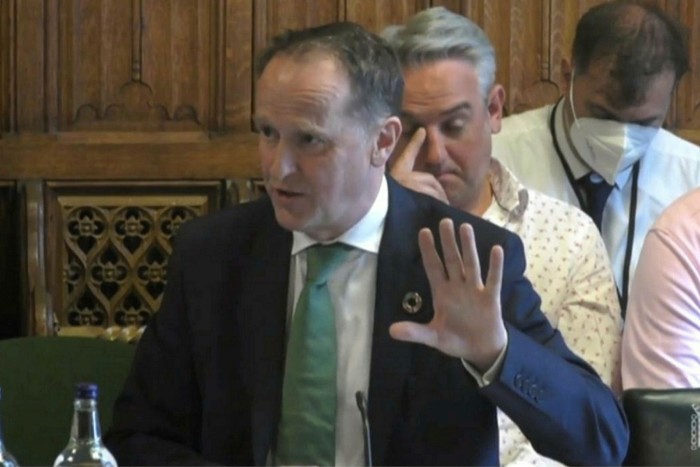Energy chiefs warn of ‘truly horrific’ autumn for British households
Energy chiefs have warned of a “truly horrific” spike in household bills in the autumn that could leave up to 40 per cent of households in Britain in fuel poverty unless the government offers further help.
Keith Anderson, chief executive of ScottishPower, told MPs people were going to “really, really struggle” in the autumn with the weather turning cold and the household energy cap expected to rise again.
Anderson said ScottishPower had received 8,000 calls last week alone from people expressing worries about their ability to pay their energy bills.
“There is a massive concern from people, with a huge amount of anxiety from people on the phones about what they are going to do . . . there are a lot of people for the first time facing this issue, they’ve never been in this position before,” he told the House of Commons energy select committee.
Michael Lewis, chief executive of Eon, warned the committee that a large proportion of Britain’s 27mn households were likely to end up in fuel poverty from October without further government intervention.
“We are looking at up to 30 or 40 per cent of people going into fuel poverty when the price goes up again in October,” he said, adding that the situation required “unprecedented action from the government”.

At the start of the month, energy bills for the 22mn British households not on fixed-term deals rose 54 per cent as regulator Ofgem increased the price cap to just under £2,000 a year on average.
Analysts have warned the price cap could jump again in October by as much as £600 — in part due to the war in Ukraine — depending on movements in the wholesale energy price in the coming months.
In an attempt to help households, chancellor Rishi Sunak in February promised a £150 rebate on council tax bills for those in property bands A to D from April and a £200 loan to households in October, which would be repaid over the subsequent four years.
But Lewis said Sunak’s intervention in February was “not nearly enough” to mitigate the full impact of rising prices.
Anderson added that most families would cope during the summer when consumption usually falls because the weather is warmer but warned: “Come October that’s going to get horrific, truly horrific.”
He called for a “deficit fund” under which the government would knock £1,000 off the bills of anyone considered “vulnerable” or in “fuel poverty”, with the money repaid over 10 years.
Lewis said he backed the proposal but also called for short-term measures, such as cutting VAT on bills. He forecast that his customers’ debt would rise by 50 per cent by the end of the year — or £800mn — as a result of the price increases.
Chris O’Shea, chief executive of Centrica, owner of British Gas, said from October it would get “much worse” without further intervention. The number of Centrica customers late with payments had risen by 125,000 to 716,000 over the past year, he added.
There is no set definition for fuel poverty, but it is generally classed as households that must spend a high proportion of their income to keep their home at a reasonable temperature. Latest estimates suggest it affects about 13 per cent of households in England, 25 per cent in Scotland and 12 per cent in Wales.
Simone Rossi, chief executive of EDF, said his company had seen a 40 per cent increase in calls from customers worried about debt. His most vulnerable customers would see the proportion of their income spent on energy rising from £1 in £12 to £1 in £6 later this year, he warned.
The Treasury said the chancellor had promised to review the situation before October and would decide on an “appropriate course of action at that time”, adding that the government stood ready to support people as required.
Additional reporting by Leke Oso Alabi
For all the latest Business News Click Here
For the latest news and updates, follow us on Google News.

